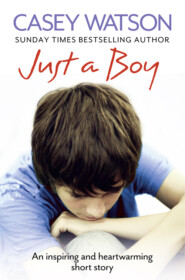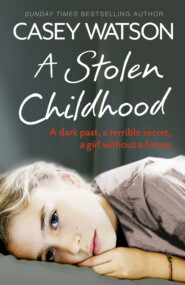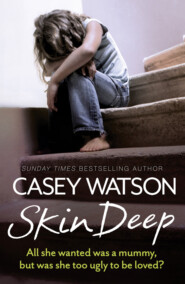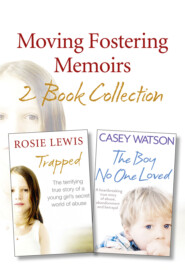По всем вопросам обращайтесь на: info@litportal.ru
(©) 2003-2025.
✖
Runaway Girl: A beautiful girl. Trafficked for sex. Is there nowhere to hide?
Настройки чтения
Размер шрифта
Высота строк
Поля
‘No touch!’ Almost a scream now. ‘No touch me! Am fine!’
‘Adrianna –’ Joe began. Arianna’s hand flew towards the stethoscope, batting it angrily away from her, making the end flip up and hit the doctor on the arm.
‘No TOUCH me!’
‘Sweetheart,’ I tried, coming closer. She looked genuinely terrified. ‘What’s all this about? The doctor just needs to –’
‘No touch me! No TOUCH me!’ she yelled. Proper screams now.
Joe put his hands up. ‘Okay, okay. No touch. I promise. I’m not here to hurt you, Adrianna. Just to see if you need help. Need medicine perhaps. Medicine?’ he repeated, enunciating the word carefully. ‘You understand “medicine”? In case you’re ill?’ He raised the stethoscope again, and again Adrianna batted her hand at it. So he lowered it, then placed it back in his bag and raised his empty hands. ‘All right. Fair enough then. Perhaps we’ll leave that for another day.’
‘No TOUCH,’ Adrianna sobbed. ‘Am ok-AY! Am ok-AY!’
Which pretty much confirmed it. She wasn’t.
‘Perhaps,’ Joe said once we were back downstairs again, ‘this is best left till she can be seen by someone who can communicate with her properly. I’ll ask Dr Shakelton if he can fit her in, shall I? He has quite a few Polish patients, and might be able to reassure her.’
I didn’t say so but I doubted it. Whatever had caused Adrianna’s outburst struck me as being less to do with the language barrier than with the gender barrier, which only reinforced my increasing worry that there was more going on than simple displacement or fear of strangers.
And it seemed Dr Joe was thinking along the same lines. ‘You know, something else strikes me,’ he said, just as I was about to suggest it. ‘Perhaps she’d be better off seeing a female GP. Perhaps that’s it. Perhaps that’s the way forward. Though, for what it’s worth, I’m not unduly concerned about her physically. Yes, her temperature is a little high, but I’ve not seen anything to ring alarm bells. She’s pale, yes, and she definitely looks run down, as you say, but I don’t think she’s confused. I suggest you keep a close eye on her and if you’re in the least bit anxious call the surgery again, or bring her down, of course – or I’ll come back to her. Or call an ambulance,’ he finished. ‘You know the drill.’
I nodded as I passed him his jacket. ‘I think there is probably a great deal we don’t know,’ I said. ‘And I think you might be right. Though on the face of it, I think I might need CAMHS more than I need a GP right now. I’m sorry to have called you out for nothing.’
CAMHS was the Child and Adolescent Mental Health Service, and I made a mental note to ask John what he thought about involving them with Adrianna. But even as I thought it, I doubted they would see her as a priority, knowing their workload, which was always immense. They tended to be more involved with children with behavioural problems rather than linguistic barriers.
‘No, no. You did the right thing,’ Dr Joe said as he rolled his sleeves down and pulled his jacket back on. ‘I’m inclined to think it’s a viral infection, so I won’t prescribe anything just yet – not without taking a proper look at her – but I agree with you; it might be worth you looking into some sort of counselling service – preferably one with a translator. I don’t know what you’ve been thinking but I wonder if her reaction to me could be a sign of some kind of abuse?’ He frowned. ‘I mean, if she’s a runaway and has been sleeping rough … Well, it’s not exactly unlikely, after all.’
I told him I’d been thinking exactly the same thing and that I was going to speak to John Fulshaw as soon as I’d logged his visit. ‘And in the meantime,’ I asked, ‘should I give her anything at all? You know, for her temperature or anything?’
‘Just paracetamol if she appears to need it, and obviously keep her well hydrated, but, seriously, if she’s no better by Monday, do give me another call and we’ll see what we can conjure. And, as I say, call the out-of-hours service over the weekend if you’re concerned. It’s always better to be over-cautious when there’s a language barrier. She might not know the words to tell us what’s wrong, mightn’t she?’
And more to the point, I thought – but didn’t say, since the doctor had a busy afternoon ahead of him – didn’t seem to want to find the words to do so either, which struck me as the oddest thing of all.
I went straight back upstairs as soon as the doctor had left, to find Adrianna where we’d left her, curled up under the duvet, seemingly unwilling to ever relinquish it again. Was that her plan? To just stay there till someone commanded her to go elsewhere? What was going on in this enigmatic teenage girl’s head?
‘Przepraszam,’ she said quietly. ‘Casey, I am sorry.’
I didn’t need the translation. I knew what przepraszam meant because Tyler had already told me (though it sounded like a spell off Harry Potter). It was one of the words on the list he had painstakingly written out for me. A list of words and phrases, I noted, that he had also copied for Adrianna in reverse, but which, these few instances of courtesy aside, she seemed to have little interest in studying. She had little interest in improving her English at all, it seemed. Why? Since she didn’t seem to want to go home, why wouldn’t she?
I experienced a moment of frustration. This was surely one of the ways in which she (and immigrants generally) could only strengthen her position. I knew what people could be like. You saw it everywhere. It genuinely irritated people when immigrants appeared not to want to integrate; a point of view with which I had sympathy.
But this poor child – for child she was – obviously had a great deal more going on in that head of hers than we knew, and now was probably not the moment to start grilling her about her lack of vocabulary. She’d been with us less than a week. She was scared and traumatised, and also suffering from a probable virus. So what harm was there in her sleeping the days away till she was well enough to see past that? At least the doctor had been, and his reassurance had done its job and reassured me.
‘It’s okay, love,’ I told her, patting her. ‘I just don’t understand, that’s all.’ I smiled. ‘But you don’t understand me either, do you? So there’s not much point in me rattling on at you, is there? You get some sleep now.’ I mimicked the praying movement the doctor had made earlier, then pointed floorwards. ‘I’ll be downstairs if you need me.’
And, in the meantime, I would go down and log the doctor’s visit. And perhaps call John Fulshaw to see how he felt we should best proceed. Because, for all that this was seemingly a clear, temporary brief (and to which my usual ‘Yes I can’ response still felt like the right one), something was beginning to make me think there’d be complications down the line. In short, my fostering antennae were now twitching.
And they continued to do so as I sat at the dining table typing on my laptop, coffee at my side, pondering the question of quite what to do next. I could hardly get online and teach myself Polish in a couple of hours, just as surely as I couldn’t teach Adrianna English – even should she express any enthusiasm for learning it. Not that I should get ahead of myself; the answer to the question might equally be ‘nothing’, as John might call any day to announce she was leaving, having found a suitable foster family for her long-term. Or, less likely, but still one of a range of possibilities, a friendly relative who’d popped out of the woodwork and come to take her home.
In the meantime we could only keep on doing what we were doing, and – in my case, because it was my antennae that were twitching – be alert to anything that might shed more light on our secretive girl’s situation.
I was just committing that thought to the keyboard when I heard the front door, closely followed by a shouted ‘Cooooeee! Get the kettle on, sis!’
I smiled and lowered the screen on the laptop. We’d had one of those huge budget supermarkets open at the end of our road the previous year – a circumstance that had caused quite a lot of disgruntlement among the neighbours, for fear of parking issues, littering and a general ‘lowering of the tone’, as if we were some posh middle-class suburb, which we weren’t. Even so, there was the usual snobbish annoyance at the council for letting them do it, something which, not being as perfect as we liked to believe, myself and Mike – ahem – were a part.
It didn’t take long, though, to realise how silly we’d been. For starters, we soon realised we were saving a fortune, and, better still, it meant I saw more of my sister.
Donna ran a café in town – had done for a few years now. And a very good café it was too. She’d called it Truly Scrumptious, and the fare she served obviously was, because it was heaving pretty much every day of the week. And with the new branch of the budget supermarket being so close to us, she could grab a cab there – she didn’t drive – and stock up on super-cheap tea, coffee and sugar, and then drop in for a coffee and a natter with me and, sometimes, a lift back as well.
I got up to find her in the hall, plonking down a load of straining carrier bags. ‘Only a quick one,’ she clarified. ‘I’ve just got half an hour. Carol’s in on her own, and I’ve dragged Chloe in to help, so I’d better be quick.’
Carol was the stalwart who’d worked for Donna almost since the outset, and Chloe was my 18-year-old niece. She was in the sixth form, and, in theory, was only supposed to work on Saturdays, but if it was a day when she didn’t have any lessons, and the café was busy, Donna would often let her come in and earn a bit of extra pocket money.
‘So. Where is she?’ Donna asked without preamble. My sister didn’t foster, but she always took an interest. So much so that I hadn’t ruled out the possibility that, if the café ever became too much or too samey, that at some point she too might take the plunge.
I indicated with my eyes as I poured us both a coffee. ‘Upstairs in bed. She’s not well. So there’s not much to report. She’s barely been downstairs since she came here.’
‘But she’s a teenager, isn’t she?’ Donna said. ‘So that’s just typical. Teenagers like hiding away in their bedrooms. I wouldn’t worry – you hardly ever see them at that age.’
‘I don’t think that’s it in this instance,’ I said. ‘She’s not right. She’s not right and she’s ill too.’
I told Donna about the doctor’s visit and Adrianna’s extreme, and unexpected, reaction to it. She laughed. She used the same surgery that we did. ‘Dr Joe? Well, he’d get quite the opposite reaction from me. Though, to be fair, she is 14. You know what girls are like at that age. Some strange man comes in, starts wanting to prod her around – and a foreigner, to boot … Seriously, what’s the story with her? I’m completely intrigued. I didn’t realise you could even foster foreign nationals. Stuff you hear about them being taken to detention centres and all that.’
I laughed. ‘Hardly – she’s from Poland. So she’s allowed to be here anyway. Well, would be, if she was here legally. Which we’re not sure she is. She says she doesn’t even have a passport. But, to be honest, we know almost nothing else about her. We’ve barely exchanged half a dozen sentences the entire time she’s been with us, and, as I say, her English is almost non-existent. And not likely to improve, either – she seems frightened of everybody and everything, wouldn’t answer any of the interpreter’s questions, wouldn’t let Tyler bring his Polish friend home for tea, and, well, as I say, just seems to want to stay in bed, pretty much. Right now I don’t know whether she’s properly sick, or homesick, or just plain exhausted. And there doesn’t seem a lot I can do about any of it at present either. Which is a pretty odd place for me to be.’ I glanced across at my fridge freezer. ‘Sounds mad, but I’m missing my chart!’
Donna grinned. Then said thoughtfully, ‘It’s probably a combination of all of those things, isn’t it? And it’s only been a few days, after all. You can’t expect to know everything about everything after such a short time. Even you.’
‘That’s what Mike thinks,’ I said. ‘But you know when you just have that inkling about someone? Well, I’ve got that. Increasingly, that’s what I’ve got.’
‘Such as?’
‘Such as despite what she told John, I reckon there’s something bad, as in possibly actionable, that she’s run away from. And not back in Poland, either. I reckon there’s more. Something criminal. Something serious.’ I tapped the table top. ‘Something that’s happened here. Maybe she’s witnessed something. Some crime or something. You know?’
Donna drained her mug. ‘You watch too many bloody Scandinavian murder mysteries, you do. Anyway, speaking of criminal, can you whistle up one of those over-priced taxis for me? I’m assuming a lift home’s probably not on the cards.’
‘Poland’s not in Scandinavia,’ I pointed out. ‘And, no, sorry, sis – you know I would but I don’t like to leave her. I just have this suspicion –’
‘Go on, tell me. That there might be bogeymen lurking behind Lidl, and that things are not entirely az zey seeeem?’
At which I laughed, because I knew my imagination could get the better of me. But that, or a version of it – that Adrianna was running scared – was almost exactly what I did think.
Chapter 4 (#ua7934ea9-96e6-5d32-ac14-80624485034c)
Thankfully, over the weekend Adrianna’s temperature went down and by Sunday she had ventured downstairs to join the family, clad in a hoodie and old trackie bottoms of Riley’s. She’d also asked – with much gesturing and helpful bits of mime – if she could borrow some washing powder so she could launder her clothes.
‘Don’t be daft,’ I said. ‘Let me have them and I’ll put them through the machine for you.’ But several visits to Google Translate and gentle argument later, I had to concede that she was not going to let me do that under any circumstances – that we had already done enough for her and she did not wish to be a burden. I didn’t push it. Perhaps, I decided, thinking back to when I was 14, I would have baulked at a complete stranger washing my clothes as well.
There was also the business of her being independent. Having travelled so far, and taken care of herself for so long, she probably had a great deal of adjusting to do before she could truly settle into family life. I’d seen similar scenarios in children as young as seven or eight, particularly if they’d spent time in the care system. To strip them of their independence and privacy was to disable them even further – at least in the short term, when everything in their lives felt so out of their control. These were things that at least they could control.











